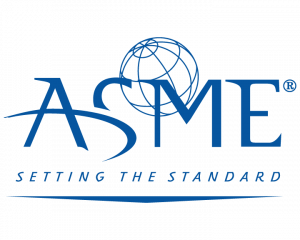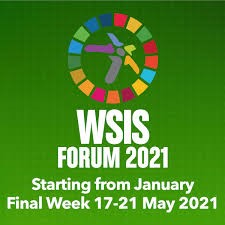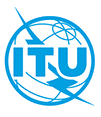Many of the world’s greatest challenges—poverty and hunger, clean water, climate change, among many others—can be powerfully addressed by engineering and technology. Information and Communication Technologies (ICTs), present tremendous opportunities for leaps forward, allowing humans everywhere to thrive and lead healthier, safer lives. New means of communication and data gathering in real time have been empowering community health workers, improving the curriculum in isolated schools, and enabling quicker responses to global health crises like the COVID-19 pandemic. As Jeffrey Sachs writes in the Earth Institute’s report How Information and Communications Technology can Accelerate Action on the Sustainable Development Goals, “ICT has immense potential to speed up and scale—or increase the rate of diffusion of—a very wide range of cutting-edge technologies, applications and platforms across the economy, helping low-income countries to leapfrog to achieve key development milestones while contributing to a growth economy.”
The social sector and engineering fields are in a state of evolution and rapid growth fueled by digital connectivity. Solution development and delivery increasingly spans technical disciplines, cultures, and socio-economic conditions. With the target deadline for the Sustainable Development Goals (SDG) less than a decade away, engineers equipped with the necessary training and high-quality information are now, more than ever, needed on the frontline of social change. Mounting evidence demonstrates the critical role that digital platforms and networks play in activating engineering talent and accelerating sustainable solutions. The potential of enabling technology is relational, though; it works within the context of existing projects and cannot generally be delivered by any single stakeholder. Ensuring impact therefore rests on developing high-functioning partnerships with key stakeholders, particularly across the private and public spheres.
At the Sixth Annual UN Multistakeholder Forum on Science, Technology and Innovation Forum, Engineering for Change, ASME, and ITU hosted a session designed to create a better understanding of how enabling technologies can be used to develop and deploy human infrastructure, strengthen stakeholder partnerships, accelerate innovation and contribute to building better through the SDGs. The program incorporated multistakeholder speakers from business, NGOs, government, academia, and cross-sector organizations, as well as front-line entrepreneurs from the communities where projects are being implemented. The event took an ecosystem approach, integrating lessons learned from the pandemic, and yielded practical insights.
Speakers
Alex Wong serves as the Chief of Special Initiatives in the Office of the Director of the Telecommunications Development Bureau at the International Telecommunication Union (ITU), the United Nations specialized agency for information and communication technologies (ICTs). In this role he is leading Giga, a joint project between ITU and UNICEF to connect every school to the internet, and every young person to information, opportunity, and choice. Prior to joining the ITU, Alex has worked in both the private and not-for-profit sectors. He has served as President of CG/LA Infrastructure, a US based company that promotes and develops infrastructure projects around the world. Alex was a member of the Executive Committee at the World Economic Forum, an international organization for public private cooperation with a mission to improve the state of the world, where he held several leadership roles including the development and rollout of the Forum’s Global System Initiatives; heading the ICT, Media & Entertainment, Basics, and Infrastructure industry teams and related projects; and heading the Center for Global Industries Geneva. Additionally, Alex worked in a variety of professional roles at Accenture as a Strategy Consultant, General Motors as a Quality Control Engineer, and the US National Parks Service. Alex is a licensed Professional Engineer with a degree in Mechanical Engineering from the University of Toronto and a Masters in Public Administration from Harvard University.
Dr. Evan Thomas is the Director of the Mortenson Center in Global Engineering and holds the Mortenson Endowed Chair in Global Engineering at the University of Colorado at Boulder. He is a tenured Associate Professor jointly appointed in the Civil, Environmental and Architectural Engineering and the Aerospace Engineering Sciences Departments, and an affiliate faculty in Environmental and Occupational Health at the Colorado School of Public Health. Evan is a currently a member of the NASA and USAID SERVIR Applied Sciences Team. Evan has a PhD in Aerospace Engineering Sciences from the University of Colorado at Boulder, is a registered Professional Engineer, and has a Masters in Public Health from the Oregon Health and Science University.
Jean Shia is the Head of Portfolio and Investment at the Autodesk Foundation where she invests in a portfolio of 30+ organizations using technology for positive social and environmental impact and leads the Foundation’s impact management function. Since 2015, Jean has overseen the deployment of $20M+ of charitable capital in grants and impact investments. Jean has two decades of experience working across the public and private sectors in social entrepreneurship, economic development, finance and strategic operations. Jean was previously the Vice President of Business Operations at Driptech, a for-profit social enterprise focused on improving smallholder livelihoods through low cost irrigation technologies. She started her career as a Fellow in the NYC Department of Housing Preservation and Development working to revitalize communities across New York. Jean received an MBA from the Haas School of Business at UC Berkeley and a BS with Honors in Urban Studies from Cornell University.
Mr. Malcolm Johnson is the Deputy Secretary-General ITU. Mr. Johnson is a seasoned information and communication technology (ICT) executive who has served in multiple senior management positions at ITU. Prior to serving as Deputy Secretary-General, he served as Director of ITU’s Telecommunication Standardization Bureau (TSB). Before joing ITU, he was International Coordinator at the United Kingdom’s Office of Communications (Ofcom), where he had lead responsibility for the United Kingdom in ITU. He was Director of the United Kingdom’s Radiocommunications Agency and European Coordinator for ITU World Radiocommunication Conferences in 1993, 1995 and 1997. Mr. Johnson is a Member of the Global Enabling Sustainability Initiative (GeSI) Board, spearheading the ‘Digital with Purpose’ Movement to create business value through radically accelerating the enabling power of digital technology to meet the Paris Agreement and Sustainable Development Goals, whilst minimizing negative externalities that may arise. Mr. Johnson graduated from the University of Wales, Cardiff, with MSc and BSc degrees. He is a Chartered Engineer, a Fellow of the Institution of Engineering and Technology, an Honorary Professor of Amity University and an Academician of the International Telecommunication Academy.
Ambassador Prof. Dr. Milica Pejanović-Đurišić is the Permanent Representative of Montenegro to the United Nations, New York.
Milica Pejanović-Đurišić received her degree in Electrical Engineering in Podgorica, followed by MSc degree and PhD in Telecommunications at the Faculty of Electrical Engineering in Belgrade. She has been engaged at the Faculty of Electrical Engineering, University of Montenegro, where she got the title of a full professor in the field of Telecommunications in December 1998. She also performed the duty of the Vice-Dean and the President of the Council at the Faculty of Electrical Engineering. Founder and director of the Research Centre for ICT, Prof. Dr. Pejanović-Đurišić has been cooperating with numerous foreign universities and research centers as a visiting researcher and lecturer. In her research work she is focused on the area of wireless communications, where she has achieved notable results that were published in several hundred scientific papers in international journals and international conferences, in scientific and professional papers in domestic journals and conferences, as well as in a number of books. She is a member of the professional associations of IEEE, IEICE, the Telecommunications Society of Serbia and Montenegro. Professional engagement of prof. Pejanović also includes expert activities in the field of new generations wireless systems and implementation of Internet technologies, within the ITU (International Telecommunication Union), the UN organization in Geneva. She gained significant experience also while worked as a consultant for industrial companies in the field of mobile communications, as evaluator of FP6, FP7 and HORIZON2020 projects of the European Commission and a member of global professional associations and initiatives in the field of ICT.
Thomas Costabile is an accomplished C-level executive with a strong track record of delivering successful results for large global organizations while leading them through significant change. As Executive Director/CEO of The American Society of Mechanical Engineers (ASME), he oversees the organization’s strategy around ASME’s initial core technologies – manufacturing, bioengineering, robotics, clean energy, and pressure technology- and organizational programs in codes and standards development, membership, conferences, technical publishing, education and professional development, and public policy. Costabile is a trained mechanical engineer who began his career in the nuclear power industry. He then went on to serve in important leadership positions at CBS Records, SONY Music, and the WEA Manufacturing-Warner Music Group. Prior to joining ASME, he served as consultant for Carlan Advisors and partner at 3ssentials, LLC. He has also provided leadership on several not-for-profit boards, including Montgomery Academy, University of Oregon Foundation, the Oregon Children’s Foundation and the High Tech Broadcasting Network. Thomas Costabile earned his MBA with honors in Finance from Long Island University and a BSME with honors from Manhattan College.
Dr. Tonny K. Omwansa is the current CEO of Kenya National Innovation Agency and member of ISACA, IEEE, the Board of Trustees of Kenya National Research Fund and the National Commission of Science, Technology, and Innovation. He has been involved in the technology start-up ecosystem in Africa for the past 10 years, founding and running various entrepreneurship programs and accelerators, across different sectors including fintech and mobility. These include the University of Nairobi’s C4DLab, the TUMI Start-up Accelerator, the CISCO Edge Accelerator, the Africa Mobility Initiative (AMI) and the Nairobi Innovation Week (NIW) Start-up program. He has also been a mentor and member of jury of other start-up programs (e.g. the Zambezi and PIVOT competitions). He has been a faculty member at Strathmore University and the University of Nairobi. Dr. Omwansa created the Nairobi Innovation week, mobilizing over 50 partners from the public and private sector and academia to enhance the local innovation ecosystem. Dr. Omwansa is interested in the design, adoption, and impact of innovative low-cost, and appropriate technologies in developing countries. He has been conducting extensive research and consultancy projects for the past 15 years on technology, innovation, financial inclusion, and mobile transactions, for various clients ranging from government institutions, international donors to multinationals and produced numerous products, reports, and publications, including a book: “Money, Real Quick: Kenya’s Disruptive Mobile Money Innovation” in 2012.
Carolina Rojas is pursuing her B.Sc in Mechanical Engineering and works as a Research and Administrative Assistant at the Fab Lab in Universidad Tecnológica de Panamá and as Program Coordinator at Engineering for Change. She has three years of experience working and volunteering in the global development sector for Engineering for Change and Panama Flying Labs. Carolina contributes to sustainable development efforts both through engineering and science policy, she is an advocate for the democratization of fabrication technologies and the use of robotics for social good and participates in science policy efforts in Latin America. She is currently involved in projects that aim to create bridges between people and manufacturing technologies to strengthen the capacity of vulnerable communities in Panama to develop local solutions to waste challenges by creating eco-products and green entrepreneurship initiatives. Carolina also serves as Technology Focal Point for the United Nations Major Group for Children and Youth, Public Policy Liaison for IEEE Entrepreneurship and as a member of the board of directors of Bridges for Science, a Latin-American initiative focused on bridging policy and science with the goal of promoting evidence-based policymaking. Her ultimate goal as a professional is to develop projects where access to appropriate technology is considered a catalyst for the socio-economic growth of communities and specifically of people living in poverty.






Amazing panelists
Looking forward to the event!
It will be a pleasure to attend the event. Thank you all for the opportunity to attend.
very informative webinar